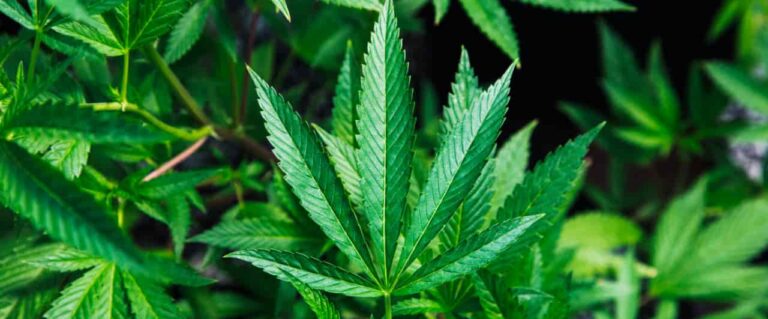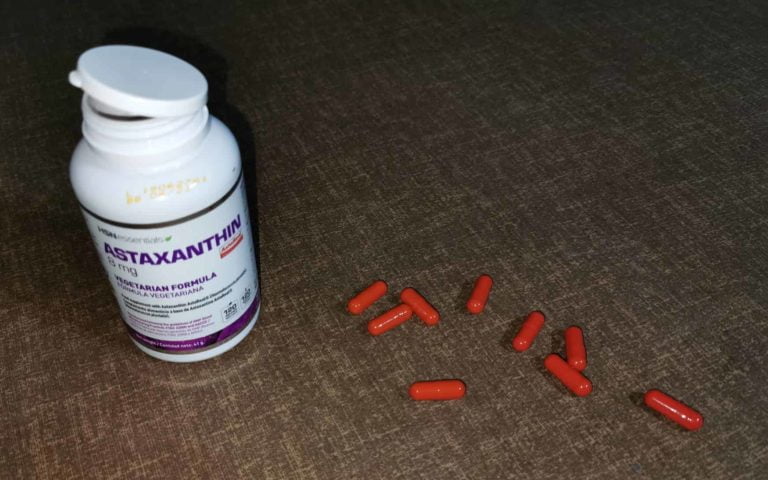Quercetin is a bioflavonoid that has shown to have multiple antioxidant benefits that support the immune system by helping to improve allergies, to kill cancer cells and to support a good heart health among others.
What is quercetin
Quercetin is a type of bioflavonoid (a class of polyphenol, that is, a compound found in plants), usually present in high amounts in fruits and vegetables.
Among its benefits we find ranging from anticancer and antioxidants properties to improvements in cardiovascular health, among many others benefit as explained below.
In addition to having multiple benefits thanks to its antioxidant properties, the interesting thing about quercetin is that when it is combined with certain supplements it enhances their effects because it increases their absorption capabilities among others.
Quercetin properties
Improves the immune system
Quercetin is usually known for its immune system-enhancing properties, which happens because it improves the stimulation of immune system defenses and its antiviral activity.
Several clinical studies have reported that 1000 mg of quercetin per day for 12 weeks decreases the risk of getting a high respiratory infection.1Anand David AV, Arulmoli R, Parasuraman S. Overviews of Biological Importance of Quercetin: A Bioactive Flavonoid. Pharmacogn Rev. 2016;10(20):84–89. doi:10.4103/0973-7847.194044
In addition, combining it with omega-3-rich fish oil exerts protection against neurodegenerative diseases.
Improves cholesterol and blood pressure
Just 150 mg of quercetin daily for 5 weeks are able to lower blood pressure and lower LDL cholesterol levels (bad cholesterol) without affecting HDL cholesterol in overweight subjects.
Although other studies have not shown that it is effective in lowering cholesterol on healthy individuals, others have shown that it exerts an effect on those who are overweight.
As for blood pressure , quercetin has been shown to help lowering it, at least in one study where participants with hypertension consumed 730mg of quercetin daily.2Edwards RL, Lyon T, Litwin SE, Rabovsky A, Symons JD, Jalili T. Quercetin reduces blood pressure in hypertensive subjects. J Nutr. 2007;137(11):2405–2411. doi:10.1093/jn/137.11.2405 This phenomenon occurs due to the reduction of oxidative stress and the reduction is only appreciated in people who have hypertension.
In addition, in another study made with rats, where they consumed 10mg per kg of weight a day for 5 weeks, beneficial effects were also noted for blood pressure, with a reduction of up to 21% in blood pressure (In systolic -18% and diastolic -23%) and 12% in heart rate.3Duarte J, Pérez-Palencia R, Vargas F, et al. Antihypertensive effects of the flavonoid quercetin in spontaneously hypertensive rats. Br J Pharmacol. 2001;133(1):117–124.
Could reduce allergies
Histamines are a type of chemical that we produce in the body, the histamine production is increases when someone suffers an allergic reaction. Due that they are responsible for symptoms such as itching, coughing, and other allergy symptoms, if quercetin inhibits them, some allergy symptoms may improve or disappear.
Quercetin also contributes to the inhibition of certain enzymes, histamines and inflammatory mediators that produce allergies (such as the case of the antibody Immunoglobulin E, which when increased it can lead to an allergic reaction).
That said, it is not surprising that quercetin could improve allergies, which explains why quercetin is found in many allergy control medications, especially respiratory and food allergies.4Mlcek J, Jurikova T, Skrovankova S, Sochor J. Quercetin and Its Anti-Allergic Immune Response. Molecules. 2016;21(5):623. Published 2016 May 12. doi:10.3390/molecules21050623
Quercetin lowers the risk of getting cancer
Quercetin has anticancer properties, among we find antiproliferative, suppression of growth factors and antioxidant properties.
It acts by inducing apoptosis (cell death) in such a way that it decreases the growth of tumors in the brain, liver, colon and other tissues and inhibits the proliferation of malignant cells.5Akan Z, Garip AI. Antioxidants may protect cancer cells from apoptosis signals and enhance cell viability. Asian Pac J Cancer Prev. 2013;14(8):4611–4614. doi:10.7314/apjcp.2013.14.8.4611
These benefits just apply in terms of reducing the risk of developing tumors in healthy individuals, but its consumption or the consumption of other flavonoids could worsen the effect of other anti-cancer treatments such as chemotherapy and radiotherapy, so it is better to avoid it if you suffer cancer or if you are getting a cancer treatment.
Decreases oxidation and reduces inflammation
Both quercetin and its derivatives have been shown to be potent anti-inflammatory agents in vivo studies, where quercetin is able to reduce various inflammatory measures.
Quercetin also protects erythrocytes (a type of cell that contains hemoglobin and transports oxygen through the blood) from harm caused by smoking because it reduces the reactive oxygen species (a type of free radical) produced by cigarette tar.6Begum AN, Terao J. Protective effect of quercetin against cigarette tar extract-induced impairment of erythrocyte deformability. J Nutr Biochem. 2002;13(5):265–272. doi:10.1016/s0955-2863(01)00219-4
It may reduce the formation of kidney stones produced by oxalates
Oxalates are a type of compound found naturally in a lot of foods such as cocoa, vegetables (especially green leafy ones), legumes and nuts…
This compound adheres to certain minerals, mostly calcium and iron, significantly reducing their absorption forming compounds that are mostly expelled by the intestinal tract although there are cases that end up forming in the urinary tract or in the kidneys forming stones that are normally expelled through urine.
One study concluded that giving rats a dose of 20 mg/kg of quercetin significantly reduced the formation of kidney stones.7Zhu W, Xu YF, Feng Y, et al. Prophylactic effects of quercetin and hyperoside in a calcium oxalate stone forming rat model. Urolithiasis. 2014;42(6):519-526. doi:10.1007/s00240-014-0695-7 Moreover, levels of superoxide dismutase and catalase may increase.
Although the dose for humans could be much lower and its effectiveness has not been studied yet, this study gives us an idea of the preventive effects that quercetin could have.
Could act as senolytic
Quercetin is currently being studied due to its possible potential in the senolytic field, in concrete, the effect of quercetin is being investigated when it is consumed together with Dasatinib.
Senolytics are a type of drugs that selectively induce cenescent cells death, which are a type of “zombie” cells, that is, that they cannot divide and they refuse to die, accelerating the aging process.
Dosage and how to take quercetin
Most studies that have been done about the benefits of quercetin have been done using higher doses than we can consume through a balanced diet, this means that to get benefits from it we must consume supplements.
Quercetin is believed to be absorbed in the small intestine, and is better absorbed (up to 32% more) by taking it together with a high-fat meal.8Guo Y, Mah E, Davis CG, et al. Dietary fat increases quercetin bioavailability in overweight adults. Mol Nutr Food Res. 2013;57(5):896–905. doi:10.1002/mnfr.201200619
Quercetin by itself has a low bioavailability, so when taking it it has a low absorption in the system. Among its forms we can find it (from higher to lower bioavailability) in the following forms:
dihydrate > glycosides > aglycone > rutinoside
As for the dose to feel its benefits, it depends on the benefits that you want to achieve, although in most studies the dose used were around 750 mg/kg of weight per day.
Quercetin interactions and side effects
Quercetin is a safe supplement, of all the studies that have been published on quercetin, rarely any side effects have been reported, and the few that have been reported have been mild.
The safety of ingesting doses greater than 1000 mg daily for more than 12 weeks has not been studied yet, so have caution if you are planning to consume higher doses.
Among rare side effects that have been found in animals and can be classified as serious are the toxic effects that it produces in kidneys that were already damaged or that it promotes the development of tumors, especially cancer associated with estrogen dependence.9Andres S, Pevny S, Ziegenhagen R, et al. Safety Aspects of the Use of Quercetin as a Dietary Supplement. Mol Nutr Food Res. 2018;62(1):10.1002/mnfr.201700447. doi:10.1002/mnfr.201700447
Quercetin has been shown to interact with a variety of medications because it can alter the absorption in some of them, so if you are taking a medication, it is advisable to consult with a specialist before starting to take it.

